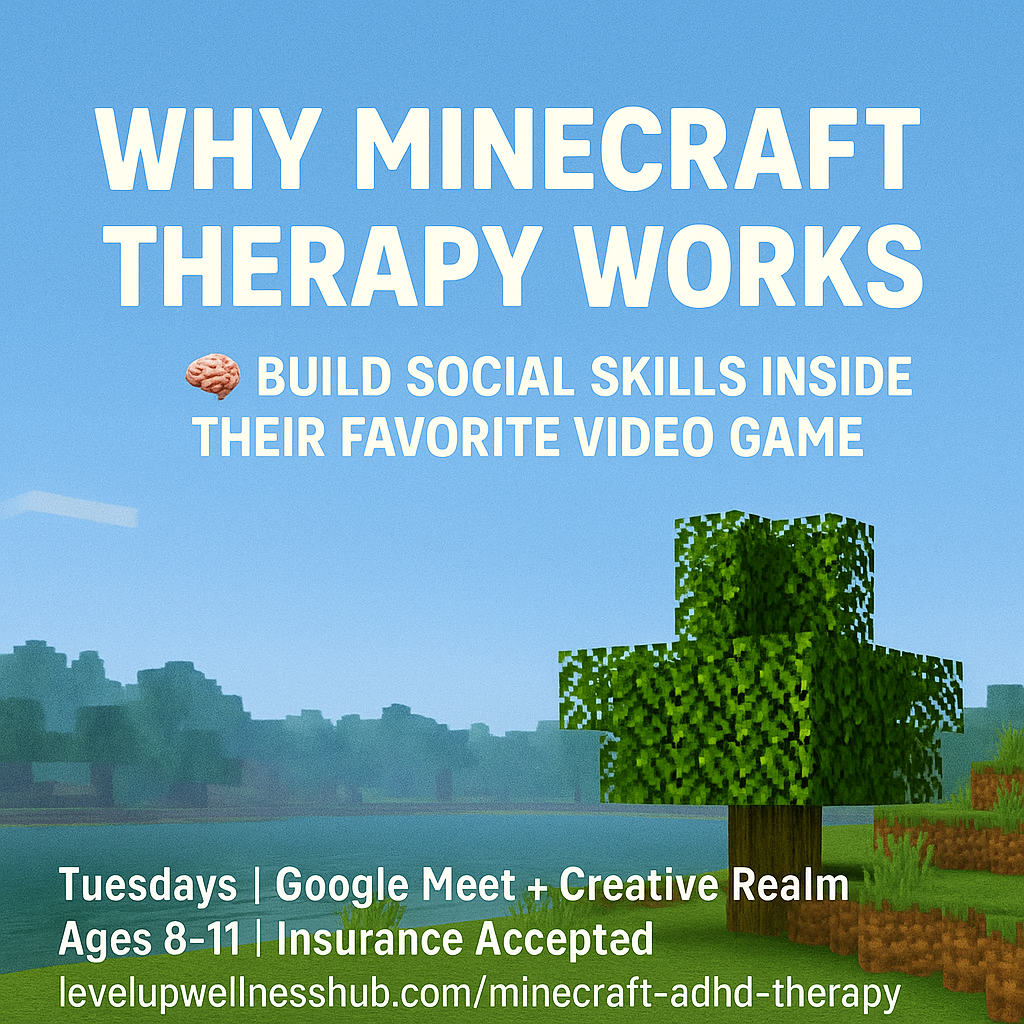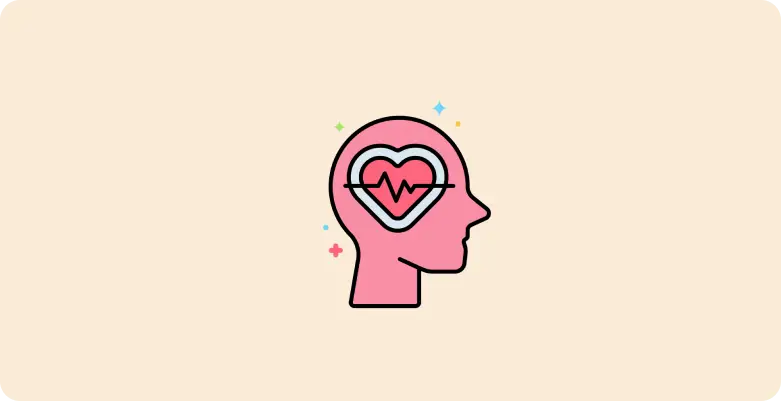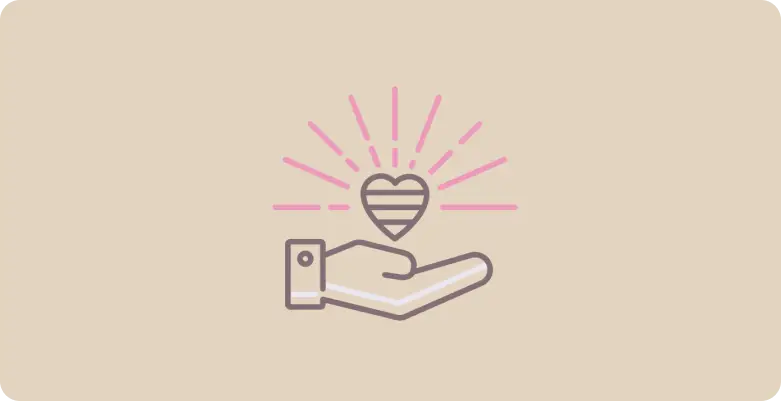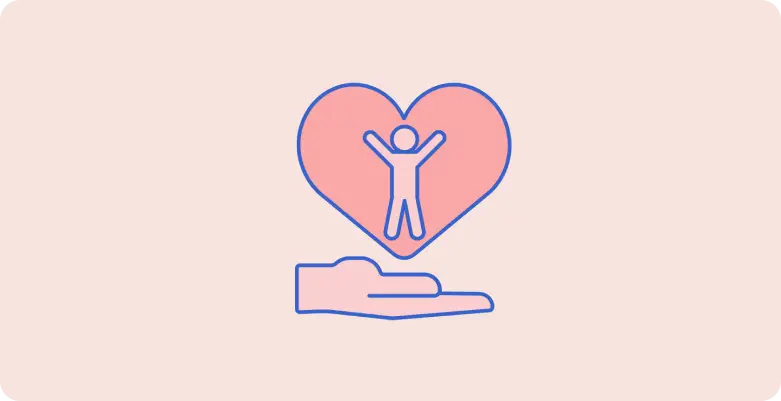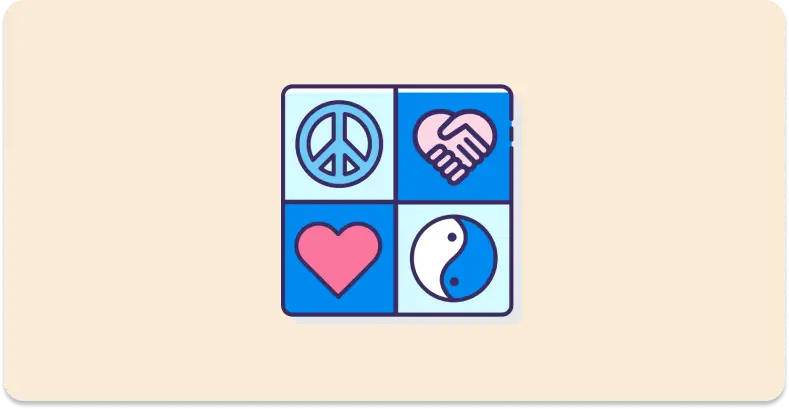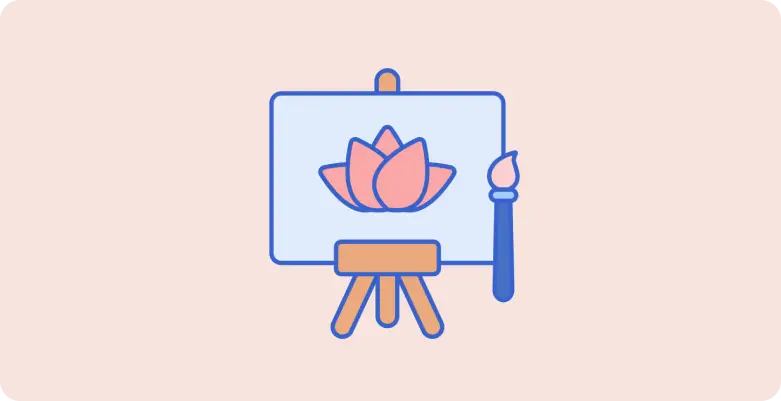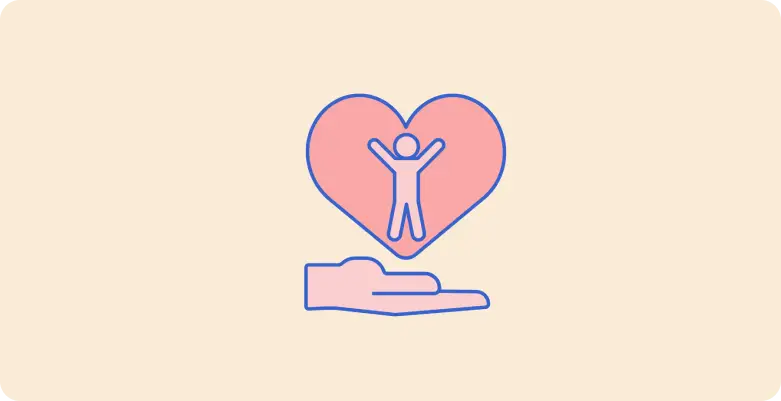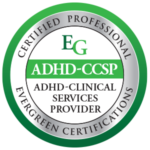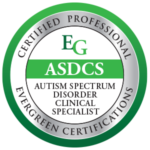ADHD Resources: Tips, Strategies, and Tools for Managing ADHD at Any Age

Hi, I'm Victoria!
Welcome! I’m so glad you’re here. I’m Victoria, a licensed professional counselor, creative arts therapist, ADHD Certified Clinical Services Provider and Special Educator with over 15 years of experience supporting individuals on their journeys towards healing and growth.
Recent Post
Impulse Control & Self-Esteem Skill Building in Minecraft
What happens when your child destroys someone else’s Minecraft build during therapy?
We talk about it.
We slow it down.
We build skills in real time—skills that ADHDers and AuDHDers desperately need, but rarely get to practice in a safe, supportive space.
🧠 ADHD, Impulsivity, and Self-Esteem: A Hidden Connection
By the age of 10, many kids with ADHD or AuDHD have already internalized harmful messages:
“You’re too much.”
“You’re not trying hard enough.”
“You’d be fine if you just had more self-control.”
What parents don’t always see is how deeply those comments shape a child’s sense of self. Repeated messaging like this chips away at self-worth. It increases shame. And it often leaves kids feeling like they’ll never be “good enough,” no matter how hard they try.
Even with medication, kids still need actual skills to manage:
- A brain that craves stimulation and novelty
- Changing hormones that amplify emotional responses
- Social situations where boundaries get blurry or broken
🎮 Why Minecraft Helps Build Impulse Control
In Victoria’s Minecraft Social Skills Group, kids get to practice impulse control in the moment—not in theory.
And yes, that means sometimes someone breaks someone else’s build.
But instead of disciplining or removing them from the group, Victoria helps them process:
- 🚫 What does it mean to set a boundary?
- 🧱 How do I repair when I’ve crossed a line?
- 💬 How do I express my frustration without hurting someone else?
These aren’t abstract ideas—they’re real-life moments that happen in a space where kids feel safe, seen, and supported.
Victoria doesn’t just stop impulsive behavior.
She helps kids understand why it happened, how to bounce back, and what to try next time.
💡 Why Victoria Created This Group
Victoria is a Licensed Professional Counselor (LPC) and Special Education Teacher with over 15 years of experience supporting neurodivergent kids.
As a teacher, she watched too many children get pulled out of class for impulsive moments—moments that were often misunderstood, unprocessed, and left to fester. Worse, many of those kids became targets of bullying because of behaviors no one helped them learn to manage.
This group is her answer to that cycle—a way to give kids the tools, support, and connection they deserve.
📆 How It Works
Victoria’s Minecraft Therapy Group is designed for kids ages 7–11 with ADHD, AuDHD, or Autism. It’s virtual, accessible, and developmentally appropriate.
- 📍 Tuesdays from 4:30–5:30 PM ET
- 🎮 Minecraft Bedrock Edition (Creative Mode)
- 💬 On camera via Google Meet for live interaction
- 🛡️ Private Minecraft Realm (safe, no strangers)
- 🔓 Realm access after hours to foster friendships
- 👥 Group size capped at 10 for quality coaching
🧾 Insurance Info
Victoria is in-network with many major insurance providers, including:
- Cigna
- Aetna
- United Healthcare & UMR
- BCBS Highmark
- BCBS PPO plans
- Independence Blue Cross Pennsylvania – Virtual National Network
- Blue Cross Blue Shield of Massachusetts Virtual Network
- Regence BlueShield of Idaho
- Blue Cross Blue Shield of Arizona
- Anthem Blue Cross and Blue Shield Nevada
- Quest Behavioral Health
- Carelon
- Optum Live & Work Well
💸 Many families pay as little as $0–$25 per session depending on their plan.
🗓️ Upcoming Cohort: Fall 2025
The current cohort ends August 12, 2025.
The next 10-week group will run from October 21, 2025 – January 6, 2026.
Spots are limited to 10 participants.
👉 Join the October waitlist and confirm insurance eligibility now
💬 Why We Meet at 4:30 PM ET
I often get asked about later groups—especially from parents juggling work, school, or multiple kids.
To be honest? I’m a single mom, and daycare pick-up is at 6 PM.
This group time works best for me right now—but I do hope to offer:
- A later group for older kids or teens
- Additional times or cohorts in the future
If you’d like to be notified when new groups open, don’t hesitate to reach out. I’d love to keep you in the loop.
Why Minecraft Therapy Works for Kids With ADHD, AuDHD & Autism
What if your child could build emotional regulation, frustration tolerance, and communication skills—inside their favorite video game?
That’s exactly what we do in my Minecraft Social Skills Group.
This virtual therapy group is designed specifically for children ages 8–11 with ADHD, AuDHD, Autism, and other neurodivergent profiles. The group meets weekly on Tuesdays using a HIPAA-compliant Google Meet video call and a private Minecraft Creative Realm—an intentionally moderated space that supports cooperative learning, social-emotional growth and has kids practicing skills in real time.
🎮 Why Minecraft?
For many neurodivergent kids, traditional therapy settings feel boring, they are overwhelmed with their own emotions and have difficulty verbalizing them making the setting less productive to process feelings. And, overall when it comes to impulsivity, talking over others, socialization, frustration and emotional regulation – these kids can’t tell you why it’s happening to make sense of it in a traditional therapy setting. But Minecraft? It’s a space they already feel confident in. It’s visual, flexible, creative, and familiar—making it the perfect setting for real-time, in-the-moment therapeutic learning. And behaviors, they’ll happen, allowing us to process them as they come up, instead of the afterthought.
Kids don’t just talk about frustration tolerance. They experience it—when a mod doesn’t work the first time, when someone accidentally builds on their structure, or when they feel misunderstood by a peer. And when those moments happen, I’m right there to guide the conversation and help them name their emotions, communicate their needs, and recover. Sure, we experience big emotions in the moment. But, unlike at school where they are asked to leave the room and their self esteem starts to tank; we’re all in it together, allowing a kiddo space to have that big emotion and space to reel it in.
🧠 Skills We Build in Group
Through guided play and structured peer interaction, we work on:
- Impulse control (especially when the urge to break a rule kicks in!)
- Emotional regulation during conflict, disappointment, or overstimulation
- Frustration tolerance when things don’t go as planned
- Collaborative communication while building shared goals
- Perspective-taking and peer empathy
- Repair and boundary setting when conflict arises
- Self-advocacy—learning how to say “I need space” or “Can you help me?”
And all of this happens in a format that mimics real-life school and social situations—except it’s so much more supportive. There’s no bullying in Minecraft group (kids are instead encouraged to talk about it). We practice setting boundaries, apologizing to each other, talking out what led to a frustration or impulsive moment.
💻 What Makes This Group Different?
- Kids are on camera the whole time. This isn’t just passive gaming—they’re practicing real communication with real faces and getting to see facial reactions.
- I’m a licensed therapist and special education teacher. I am present at every session. This isn’t a group run by an intern or a coach.
- We use the Bedrock Edition of Minecraft, which means it’s accessible across most platforms (Xbox, PC, iPad, switch, etc.).
- Kids can access the realm after hours, continuing to socialize in a safe space and build friendships from the group.
- Each cohort is limited to 10 kids, so your child gets individual support and peer visibility.
- Many kids stay across multiple cohorts because the relationships and skill-building are ongoing.
📅 Current & Upcoming Cohorts
The current summer cohort ends August 12, 2025.
The next 10-week group will run from October 21, 2025 – January 6, 2026.
Groups meet Tuesdays from 4:30–5:30 PM ET on Google Meet and in our private Minecraft realm.
I often get asked about later groups. To be honest, I’m a single mom and daycare pick up is at 6pm. Group needs to stay at this time for now. I hope to be able to offer later groups and groups for teens in the future! Please don’t hesitate to reach out if you’d be interested in being notified if a later group or older kids group popped up!
💡 Want to Join the Waitlist?
You can sign up now for the October 21st cohort using this secure Google Form:
👉 Click here to join the waitlist
Once submitted, I’ll have my biller confirm eligibility for insurance!
🏷️ Insurance Info
I’m in-network with many major insurance providers, including:
- Cigna
- Aetna
- United Healthcare & UMR
- BCBS Highmark
- BCBS PPO plans
- Independence Blue Cross Pennsylvania – Virtual National Network
- Blue Cross Blue Shield of Massachusetts Virtual network
- Regence BlueShield of Idaho
- Blue Cross Blue Shield of Arizona
- Anthem Blue Cross and Blue Shield Nevada
- Quest Behavioral Health
- Carelon
- Optum Live & Work Well
Many families pay as little as $0–$25 per session depending on their plan.
💬 Questions?
If you’re wondering whether this group is a good fit for your child, I’d be happy to connect and walk you through the next steps.
📧 vprisco@victoriaprisco.net
🔗 Learn more: levelupwellnesshub.com/minecraft-adhd-therapy
ADHD, Generational Trauma, and How to Rebuild Self-Trust
The problem isn’t you—it’s the stories you’ve been told about you.
If you live with ADHD and constantly find yourself thinking:
- “I just need more discipline.”
- “Maybe I’m just lazy.”
- “I can’t be trusted to do anything right.”
You’re not alone—and none of that is true.
What you’re experiencing isn’t a lack of effort. It’s the result of internalized shame, generational trauma, and growing up in environments shaped by undiagnosed ADHD, often misunderstood as chaos, messiness, or disobedience.
🧬 ADHD Is Genetic—But Often Goes Unrecognized
ADHD is a neurodevelopmental condition that runs in families. But because it wasn’t widely recognized until the 1980s, many individuals grew up in homes where neurodivergence was invisible or misinterpreted.
If you were a daydreamer, you may have been called “spacey” or “unmotivated.” If you were impulsive, you may have been labeled “disruptive” or “too much.” Maybe you were the kid who always lost things, made messes, or forgot directions—and instead of support, you got shame.
You might remember:
- A parent who was always late, overwhelmed, or inconsistent
- A home filled with disorganization, but no language for why
- Constant messages to “just try harder” or “be more responsible”
- Feeling like you were the problem—but not knowing why
These family dynamics weren’t your fault.
They were rooted in undiagnosed, unsupported ADHD passed down through generations—and they taught you to mistrust yourself before you even had a chance to understand your brain.
🔄 Why So Many ADHD Brains Struggle With Self-Trust
If your nervous system learned early on that your instincts were “wrong,” that your needs were “too much,” or that your failures were your fault, you likely built protective behaviors:
✅ Masking
✅ People-pleasing
✅ Perfectionism
✅ Avoidance
✅ Over-functioning
These aren’t personal flaws—they’re survival strategies that helped you navigate chaotic or misunderstood environments.
What you’re experiencing now—burnout, negative self-talk, fear of dropping the ball, distrust in your own decisions, or feeling like failed relationships are your fault—isn’t ADHD, it’s actually learnt response and now default muscle memory.
muscle memory—patterned responses wired in during childhood and reinforced in ADHD-unaware systems.
You were likely told to “just try harder” or “get it together” instead of being supported. These phrases became the script in your head. But here’s the truth:
What you’ve learned, you can unlearn.
You can teach your nervous system a new story—one based in safety, clarity, and self-trust.
🧠 3 Belief Shifts to Start Healing ADHD Shame and Burnout
1. Discipline isn’t the answer—
Compassionate structure is.
Your brain isn’t wired to thrive in rigid systems. You need supports that flex with your energy, not punish inconsistency.
2. You’re not lazy—
You’ve been operating without the right tools.
Forgetfulness, time-blindness, and emotional intensity are part of the neurological aspects of ADHD. But in solution focused therapy and coaching, we will work together to learn how to understand time management, systems for forgetfulness and how to manage emotional regulation without feeling depleted. Once you start teaching your brain—reinforcing new patterns and muscle memory—everything starts to shift.
3. Your voice matters—
It’s just been muted by survival.
Relearning self-trust means reconnecting with the voice that’s been buried under years of shoulds, shame, and silence.
ADHD Healing Requires Unlearning, Not Overachieving
You didn’t choose to carry the generational weight of misdiagnosis and misunderstanding. But you can choose to put it down.
Healing from ADHD burnout, generational trauma, and internalized perfectionism means:
- Reframing your story
- Creating systems that actually work for you
- Learning to hear and trust your voice—maybe for the first time
It’s time to stop blaming yourself for coping the only way you knew how—and start giving yourself the support you’ve always deserved.
👉 Ready to learn how to live with ADHD without shame?
Schedule an introduction session here
Keep following me for more tid bits
You’re Not Dropping the Ball — Your ADHD Backpack Is Just Too Heavy
Why ADHD and Autistic Brains Need to Let Go of People-Pleasing and Perfectionism
For neurodivergent individuals—especially those living with ADHD or autism—the traditional markers of success can feel confusing, limiting, or out of reach. Titles, timelines, and checkboxes often become traps rather than milestones, pulling focus from the real goals: joy, freedom, peace, and purpose.
But here’s the truth:
There are many ways to live a meaningful, successful life.
If you’re always trying to meet someone else’s expectations, chasing perfection, or striving for validation, it’s no wonder you feel burnt out. Neurodivergent individuals often fall into cycles of people-pleasing, perfectionism, and chronic overwhelm because they’re constantly afraid of dropping the ball.
The real problem?
You’re not failing—you’re just carrying too much.
The Invisible Backpack (And Why It’s So Heavy)
Everyone carries an invisible backpack—but for ADHD and autistic folks, it’s overflowing with:
- Half-finished projects
- “Shoulds” and social expectations
- Guilt over what hasn’t been done
- Fear of disappointing others
- Tasks you know you’ll never realistically complete
This load is made even heavier by executive dysfunction, time-blindness, and emotional dysregulation. You’re not lazy—you’re carrying the weight of 1,000 mental tabs open at once.
There are two ways to lighten the load: finish the task—or let it go.
You’re allowed to stop worrying about things you’re never going to do.
The Burnout Loop: Why People-Pleasing Feels Safer (But Isn’t)
ADHD and autistic individuals often become skilled at masking, over-functioning, and people-pleasing just to feel accepted. Over time, this creates a burnout loop:
- You say yes (to avoid guilt or rejection)
- You overextend yourself
- You fall behind or freeze
- You feel shame or panic
- You try harder to “catch up” or prove yourself
- Repeat.
Eventually, it feels like you’re always about to drop the ball, even when you’re doing your best.
Start Here: What’s Actually Important?
We often ask ourselves:
- Will I be able to…?
- Should I be worried about…?
These questions pull us into spirals of anxiety. The better question is:
What’s actually important right now?
Author Min Jin Lee shared a powerful insight:
“Self-control is choosing the important over the urgent.”
For ADHD and autistic brains, the “urgent” shows up as:
- Overwhelm
- Guilt
- Shame
- Social pressure
- Emotional reactivity
But the “important” is the long game:
- Building a life that feels sustainable
- Letting go of toxic productivity
- Learning to trust yourself again
- Finding systems that work for your brain
You Don’t Need to Follow One Path to Thrive
Success doesn’t have to look conventional to be meaningful.
You can say no.
You can stop striving for gold stars.
You can let go of the mental clutter.
There are many ways to thrive—and the right one is the one that fits you.
Ready to stop carrying what’s too heavy?
Therapy for ADHD and autism can help you:
- Unlearn perfectionism and people-pleasing
- Manage executive dysfunction
- Recover from burnout
- Reconnect with what actually matters to you
👉 Book an introduction session and let’s talk about building a life that fits your brain.
Follow for more tidbits: https://www.instagram.com/levelupwellness.hub/

